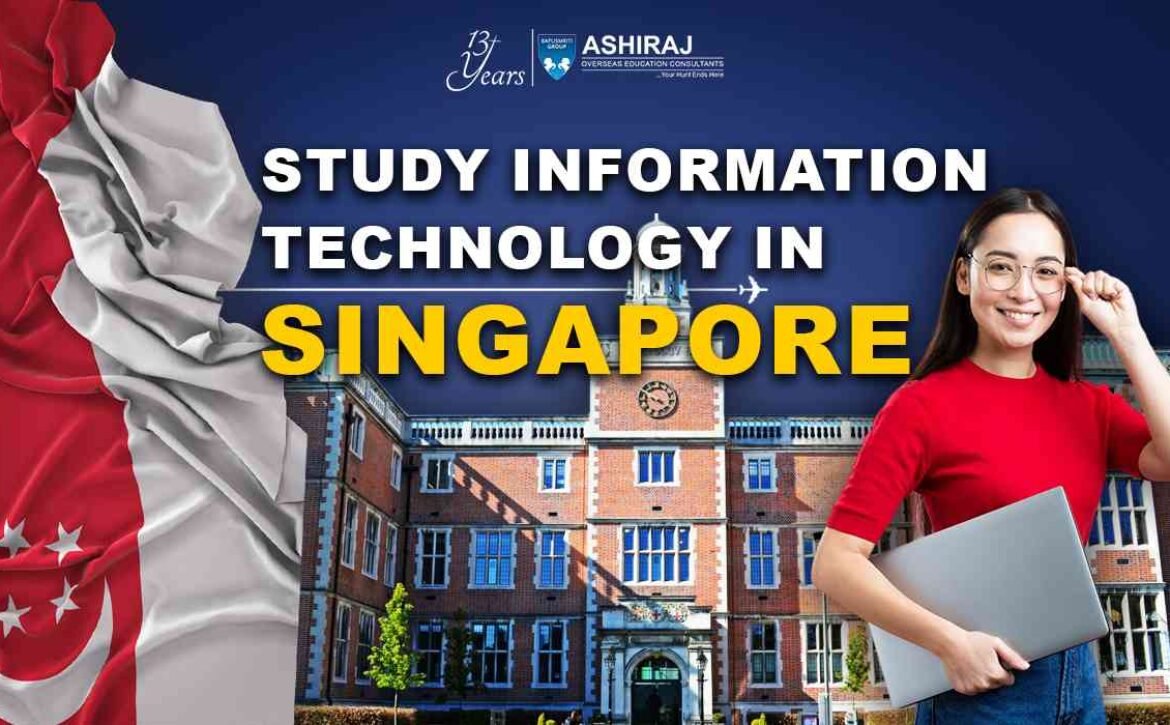
Information Technology in Singapore
Information Technology in Singapore is a cornerstone of the nation’s rapid development and global standing. Renowned for its advanced digital infrastructure and robust governmental support, Singapore has positioned itself as a leading technology hub in Asia. The government’s proactive policies, such as the Smart Nation initiative, aim to harness digital innovation to enhance the quality of life and create a conducive environment for tech businesses. This strategic emphasis on technology has attracted numerous multinational corporations and startups, fostering a dynamic ecosystem that thrives on innovation and collaboration.
The impact of Information Technology in Singapore extends across various sectors, including finance, healthcare, education, and logistics. The integration of cutting-edge technologies like artificial intelligence, big data, and the Internet of Things (IoT) has revolutionized traditional industries, driving efficiency and creating new opportunities. Singapore’s commitment to digital transformation is evident in its continuous investment in research and development, talent cultivation, and international partnerships, ensuring it remains at the forefront of global technological advancements.
Why to Study Information Technology in Singapore?
- World-Class Education System
Singapore boasts some of the best universities globally, such as the National University of Singapore (NUS) and Nanyang Technological University (NTU), which are renowned for their information technology programs.
- Cutting-Edge Infrastructure
The country’s state-of-the-art digital infrastructure supports advanced learning and research in information technology.
- Government Support
The Singaporean government actively supports the tech sector through initiatives like Smart Nation, which aims to integrate digital innovation into everyday life.
- High Employability
Graduates in Information Technology in Singapore benefit from high employability rates due to the strong demand for tech professionals in various industries.
- Multinational Tech Hub
Singapore is a hub for multinational technology companies, providing students with ample internship and employment opportunities.
- Innovation and Research Opportunities
The country invests heavily in research and development, offering students numerous opportunities to engage in cutting-edge projects.
- Strategic Location
Located at the heart of Asia, Singapore provides easy access to emerging markets and tech giants across the region.
- Cultural Diversity
Studying in Singapore offers exposure to a multicultural environment, enhancing personal and professional growth.
- Quality of Life
Singapore offers a high standard of living, safety, and excellent public services, making it an attractive destination for students.
- Industry-Relevant Curriculum
Educational institutions in Singapore ensure their information technology programs are aligned with industry needs, equipping students with relevant skills and knowledge.
Top Universities to Study Information Technology in Singapore
No. | University | QS World University Rankings 2023 | Type of University | Average Annual Fees | Programs Offered |
1 | National University of Singapore (NUS) | 11 | Public | SGD 38,000 | BSc in Computer Science, MSc in Computer Science, PhD in Computer Science |
2 | Nanyang Technological University (NTU) | 19 | Public | SGD 37,000 | BSc in Information Engineering and Media, MSc in Information Studies, PhD in IT |
3 | Singapore Management University (SMU) | 561-570 | Private | SGD 45,000 | BSc in Information Systems, MSc in Computing, PhD in Information Systems |
4 | Singapore University of Technology and Design (SUTD) | 801-1000 | Public | SGD 39,000 | BSc in Computer Science and Design, MSc in Security by Design, PhD in Engineering |
5 | Singapore Institute of Technology (SIT) | 801-1000 | Public | SGD 30,000 | BSc in Software Engineering, MSc in Cybersecurity, BSc in Computer Engineering |
List of Top Universities in Singapore for Information Technology in Singapore
- National University of Singapore (NUS) ranks highest among the top universities, offering diverse programs in Information Technology in Singapore.
- Nanyang Technological University (NTU) follows closely, renowned for its robust IT curriculum and research opportunities.
- Singapore Management University (SMU) stands out for its specialized IT programs tailored to business applications.
- Singapore University of Technology and Design (SUTD) emphasizes innovation and design in its IT-related courses.
- Singapore Institute of Technology (SIT) provides practical and industry-relevant IT education, making it a strong choice for aspiring tech professionals.
Course Curriculum for Information Technology in Singapore
- Foundation Courses
Basic programming languages (Python, Java, C++)
Introduction to Information Systems
Mathematics for IT (Calculus, Linear Algebra)
- Core Subjects
Data Structures and Algorithms
Computer Networks and Security
Database Management Systems
Operating Systems
- Specialized Modules
Artificial Intelligence and Machine Learning
Big Data Analytics
Internet of Things (IoT)
Cybersecurity
- Elective Courses
Human-Computer Interaction
Cloud Computing
Software Engineering
Blockchain Technology
- Practical Training
Lab sessions and practical assignments
Industry internships and co-op programs
Capstone projects
- Research Opportunities
Participation in research labs and projects
Collaboration with industry partners
Publishing in academic journals
- Soft Skills Development
Communication and teamwork skills
Project management and leadership
Ethical and legal issues in IT
- Continuous Assessment
Regular quizzes and assignments
Midterm and final exams
Project presentations and reports
- Industry Engagement
Guest lectures by industry experts
Workshops and seminars
Networking events and career fairs
- Global Exposure
Exchange programs with international universities
Participation in global competitions
Study trips and overseas internships
The Information Technology in Singapore curriculum is designed to provide students with a comprehensive education, blending theoretical knowledge with practical experience. This ensures graduates are well-equipped to meet the demands of the rapidly evolving tech industry.
Eligibility Criteria & Admission Requirements for MS in Information Technology in Singapore
- Academic Qualifications
Bachelor’s degree in Computer Science, Information Technology, or a related field.
High school diploma for undergraduate programs with strong academic performance in mathematics and science subjects.
- English Proficiency Tests
International applicants must provide proof of English language proficiency through IELTS or TOEFL scores.
Test | Minimum Score |
IELTS | 6.5 |
TOEFL | 90 |
- Standardized Tests
For postgraduate programs, applicants may need to submit GRE or GMAT scores, depending on the university and program requirements.
Test | Minimum Score |
GRE | 310 |
GMAT | 600 |
- Passport & Student Visa
Valid passport.
Student visa application submitted through Singapore’s Immigration and Checkpoints Authority (ICA).
- Academic Certificates
Certified copies of previous academic qualifications and transcripts.
Proof of relevant coursework in IT or related fields.
- Work Experience
Some programs may require relevant work experience, especially for postgraduate courses.
Professional references or recommendation letters may be needed to support the application.
- Personal Statement
A statement of purpose or personal essay outlining academic goals and reasons for choosing the program and university.
- Financial Proof
Evidence of sufficient funds to cover tuition fees and living expenses during the study period.
- Application Fee
Payment of the non-refundable application fee as specified by the university.
The eligibility criteria for Information technology in Singapore ensure that students are well-prepared for rigorous academic and professional training in the tech industry.
Documents Required for Studying Information Technology in Singapore
- Passport
A valid passport with at least six months of validity remaining.
- Letters of Recommendation (LOR)
Two letters of recommendation from academic or professional referees.
- Statement of Purpose (SOP)
A well-written SOP outlining your academic goals, career aspirations, and reasons for choosing the program and university.
- Curriculum Vitae (CV)
An updated CV highlighting your educational background, work experience, and any relevant skills or certifications.
- Official High School Transcripts
Certified copies of high school transcripts for undergraduate programs.
For postgraduate programs, include transcripts from all previously attended institutions.
- Academic Certificates
Copies of diplomas and certificates from previous educational institutions.
- Work Experience Certificate
Proof of relevant work experience, if required by the program.
This may include a certificate of employment or letters from previous employers detailing your job responsibilities and duration of employment.
- Proof of Financial Resources
Documentation showing sufficient funds to cover tuition fees and living expenses.
This may include bank statements, scholarship letters, or financial affidavits.
- English Proficiency Test Scores
IELTS or TOEFL scores to demonstrate proficiency in English, if applicable.
- Application Form and Fee
Completed application form for the chosen university.
Payment of the application fee as required by the institution.
The comprehensive list of documents required ensures that applicants for Information Technology in Singapore are thoroughly prepared and meet all necessary criteria to pursue their studies successfully.
Admission Process for Information Technology in Singapore
- Research and Select Programs
Identify universities in Singapore offering Information Technology programs.
Review the curriculum, faculty, and facilities of each program.
- Check Eligibility Criteria
Ensure you meet the academic qualifications, English proficiency, and standardized test requirements for your chosen program.
Verify any specific prerequisites for the Information Technology course.
- Prepare Required Documents
Gather all necessary documents such as passport, LORs, SOP, CV, transcripts, academic certificates, work experience certificates, and proof of financial resources.
- Take Standardized Tests
Complete any required English proficiency tests (IELTS/TOEFL) and standardized tests (GRE/GMAT) well in advance.
- Fill Out Application Form
Complete the online application form for the chosen university.
Ensure all personal and academic information is accurately entered.
- Submit Application
Upload all required documents along with the completed application form.
Pay the application fee as specified by the university.
- Attend Interviews
Some universities may require an interview as part of the selection process.
Prepare and attend the interview if invited.
- Receive Admission Decision
Await the university’s decision on your application.
Admission offers are usually communicated via email.
- Confirm Acceptance
If accepted, confirm your intention to enroll by the deadline specified.
Pay any initial tuition deposits if required.
- Apply for Student Visa
Submit a student visa application through Singapore’s Immigration and Checkpoints Authority (ICA) with required documents.
Following these steps will help streamline the admission process for Information Technology in Singapore, ensuring a smooth application experience.
“Education is the most powerful weapon which you can use to change the world.”
Nelson Mandela
Cost of Information Technology Course in Singapore
- Tuition Fees
Undergraduate Programs: Annual tuition fees range from SGD 30,000 to SGD 45,000.
Postgraduate Programs: Annual tuition fees range from SGD 35,000 to SGD 50,000.
- Accommodation
On-Campus Housing: Costs between SGD 5,000 and SGD 8,000 per year.
Off-Campus Housing: Rents can range from SGD 700 to SGD 2,000 per month, depending on the location and type of accommodation.
- Living Expenses
Food and Groceries: Approximately SGD 300 to SGD 600 per month.
Transportation: Public transport costs around SGD 100 to SGD 150 per month.
Personal Expenses: Estimated at SGD 200 to SGD 400 per month.
- Study Materials
Books and Supplies: Annual costs are about SGD 500 to SGD 1,000.
- Health Insurance
Health insurance coverage: Around SGD 300 to SGD 500 per year.
- Miscellaneous Costs
Application Fees: Typically SGD 20 to SGD 50 per university application.
Student Visa Fees: SGD 90 for the visa and SGD 30 for the processing fee.
- Scholarships and Financial Aid
Various scholarships and financial aid options are available to international students, which can significantly offset costs.
- Part-Time Work
Students are allowed to work part-time (up to 16 hours per week) during term time, which can help cover living expenses.
The total cost of studying Information Technology in Singapore varies based on individual lifestyle choices and financial planning, making it essential for students to budget accordingly.
Scholarships for Information Technology Courses in Singapore
Scholarship Name | Amount | Eligibility | Application Deadline |
NUS Graduate Scholarship for ASEAN | Full tuition + SGD 2,000/month stipend | ASEAN nationals enrolled in NUS graduate programs | January 31 |
NTU Presidential Scholarship | Full tuition + SGD 6,000 annual living allowance | Outstanding international students in undergraduate programs | March 31 |
SMU Global Impact Scholarship | Full tuition + SGD 5,000 annual stipend | High-achieving international students in SMU | March 19 |
SUTD Undergraduate Merit Scholarship | Full tuition + SGD 5,000 annual living allowance | International students with excellent academic records | April 30 |
SIT Future Leader Scholarship | Full tuition | International students with leadership potential | May 15 |
ASTAR Graduate Scholarship | Full tuition + monthly stipend | International students pursuing PhD in IT-related fields | January 15 |
Lee Kong Chian Graduate Scholarship | Full tuition + SGD 3,500/month stipend | International students in graduate programs at SMU | February 28 |
Scholarships for Information Technology in Singapore provide substantial financial support for international students. These scholarships are designed to attract top talent from around the world, ensuring that Singapore continues to be a leading hub for technological innovation and education.
- NUS Graduate Scholarship for ASEAN: Offers full tuition coverage and a stipend, available for ASEAN nationals.
- NTU Presidential Scholarship: Provides full tuition and an annual living allowance for outstanding undergraduates.
- SMU Global Impact Scholarship: Includes full tuition and an annual stipend for high-achieving students at SMU.
- SUTD Undergraduate Merit Scholarship: Covers full tuition and living expenses for top international students.
- SIT Future Leader Scholarship: Offers full tuition for students with leadership potential.
- ASTAR Graduate Scholarship: For PhD candidates, providing full tuition and a monthly stipend.
- Lee Kong Chian Graduate Scholarship: Full tuition and a monthly stipend for SMU graduate students.
These scholarships alleviate the financial burden of studying Information Technology in Singapore and support students in achieving their academic and career goals.
Career Opportunities After Information Technology in Singapore
Job Profile | Average Salary (SGD per annum) | Description |
Software Developer | 70,000 – 120,000 | Develops software applications, designs systems, and troubleshoots issues. |
Data Scientist | 80,000 – 140,000 | Analyzes complex data sets, applies algorithms, and provides insights. |
Cybersecurity Analyst | 75,000 – 130,000 | Protects systems from cyber threats, monitors security breaches, and responds. |
IT Project Manager | 90,000 – 150,000 | Plans, organizes, and manages IT projects, ensuring timely delivery and quality. |
Network Engineer | 65,000 – 110,000 | Designs and implements network solutions, and troubleshoots network issues. |
Systems Analyst | 75,000 – 125,000 | Evaluate IT systems, design improvements, and integrate new technologies. |
UX/UI Designer | 70,000 – 120,000 | Enhances user experience through intuitive design and usability testing. |
AI/Machine Learning Engineer | 85,000 – 140,000 | Develops AI models, trains algorithms, and implements machine learning solutions. |
Career Opportunities After Information Technology in Singapore offers lucrative salaries and diverse roles in various sectors. Professionals can pursue roles such as Software Developer, Data Scientist, Cybersecurity Analyst, IT Project Manager, Network Engineer, Systems Analyst, UX/UI Designer, and AI/Machine Learning Engineer. These positions cater to different skill sets within the IT field, from software development and data analysis to cybersecurity and artificial intelligence. Salaries typically range from SGD 65,000 to SGD 150,000 per annum, depending on experience, expertise, and the specific industry. Singapore’s vibrant tech ecosystem and strong economic outlook make it an ideal destination for IT professionals seeking career advancement and competitive compensation in the region.
Frequently Asked Questions About Information Technology in Singapore
The National University of Singapore (NUS), Nanyang Technological University (NTU), and Singapore Management University (SMU) are highly regarded for their IT programs.
Yes, Singapore offers various scholarships like the NUS Graduate Scholarship for ASEAN and the NTU Presidential Scholarship for international students pursuing IT programs.
Tuition fees for IT programs in Singapore typically range from SGD 30,000 to SGD 50,000 per year, depending on the university and level of study.
Singapore has a robust job market for IT professionals, with opportunities in software development, cybersecurity, data analytics, and more.
Work experience may be beneficial but is not always mandatory for admission to IT programs. Requirements vary by university and program.
International students are generally required to demonstrate proficiency in English through tests like IELTS (minimum score 6.5) or TOEFL (minimum score 90).
Yes, international students can work part-time (up to 16 hours per week) during term time and full-time during vacations in Singapore.
An undergraduate IT degree typically takes 3 to 4 years, while a postgraduate degree can take 1 to 2 years, depending on the program and university.
International students need a valid student visa, obtained through Singapore’s Immigration and Checkpoints Authority (ICA), to study IT in Singapore.
Singapore offers ample opportunities for research and internships in collaboration with industry partners, enhancing practical learning and career prospects.




